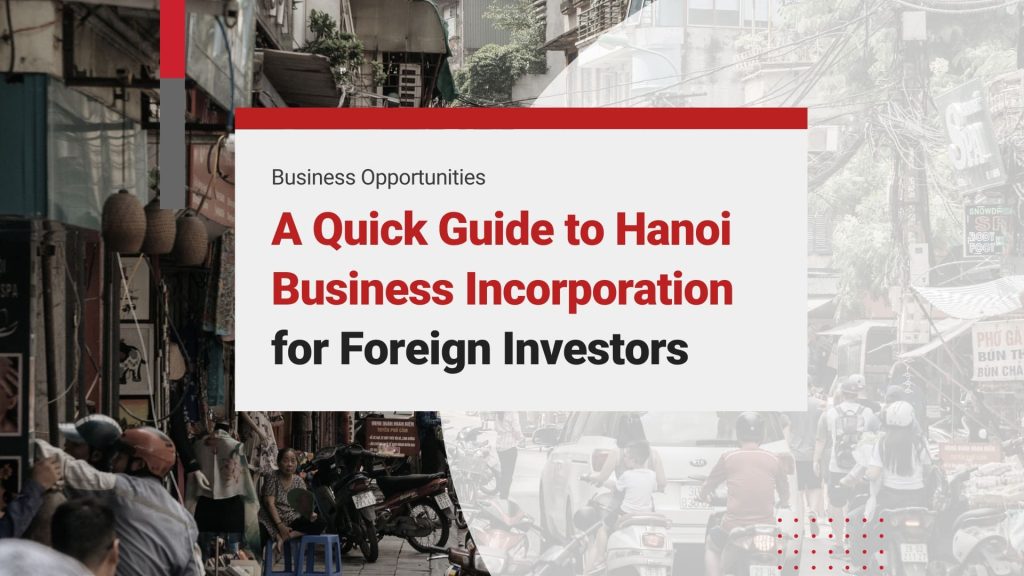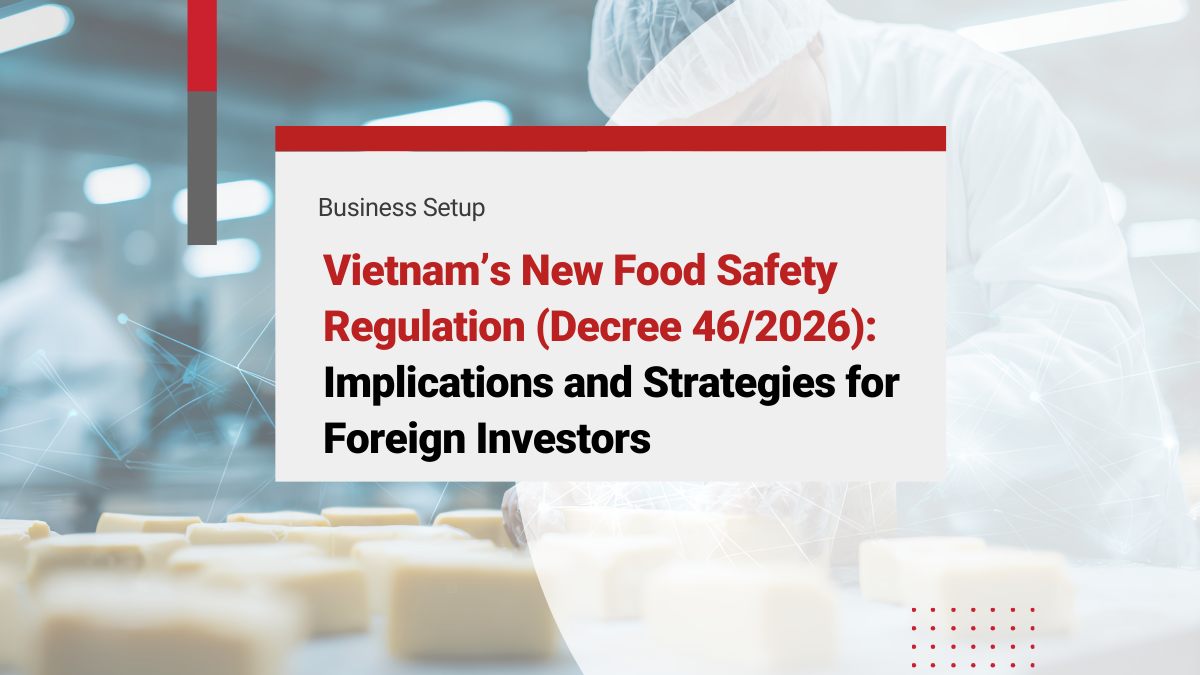Hanoi business is thriving, as Vietnam’s dynamic capital is a hub of opportunity and growth. Strategically nestled on the banks of the Red River and close to China, ASEAN’s key trading partner, Hanoi is a gateway to the region. The city is conveniently connected, with most ASEAN capitals just a 3-hour flight away, facilitating seamless trade and cooperation. With its growing appeal to investors, many entrepreneurs are considering company incorporation in Vietnam as a strategic way to enter Hanoi’s flourishing market.
Moreover, Hanoi is at the heart of Vietnam’s infrastructure advancements, with ongoing projects such as new metro lines and connecting roads, enhancing mobility and accessibility. This bustling city also boasts some of Asia’s lowest living and operational costs, making it an attractive destination for foreign direct investment. Hanoi’s blend of strategic location, government focus on infrastructure, and cost-effectiveness positions it as an ideal locale for business incorporation and investment in the region.
Economic Overview of Hanoi Business
Hanoi business offers a myriad of compelling advantages for businesses and investors. These include robust economic growth, a skilled and cost-effective workforce, streamlined administrative processes, favorable tax regulations, a strategic geographic location, and a substantial consumer market. These factors combine to create a highly attractive environment for business operations and investment opportunities.
Here is a summary of the city’s economic growth (sector-wise)
| Sector | Increase YoY (2024) |
| Industrial and Construction | 8.24% |
| Agriculture, Fishery and Forestry | 3.27% |
| Services | 7.38% |
In 2024, the Consumer Price Index (CPI) rose by 3.63%, which is in line with the National Assembly’s target. In December, the CPI increased by 0.29% compared to the previous month, primarily due to rising prices in healthcare services, rental housing, and fuel. The key contributors to the CPI increase in December included healthcare services, transportation, housing, electricity, water, and construction materials and clothing and footwear.
In 2024, the city’s economy grew by approximately 6.52%, showing a steady upward trend from 6.27% in 2023. The economic scale was estimated at around USD 58 billion, with a well-managed balance across revenues, expenditures, and development investment. State budget revenues surpassed VND 500 trillion, more than doubling last year’s figures, reflecting robust fiscal performance. Export activity has rebounded strongly, reaching USD 19.4 billion, a 16.7% increase year-on-year. Meanwhile, foreign direct investment (FDI) is on track to exceed USD 2 billion, underscoring renewed investor confidence in the city’s economic prospects. Additionally, the city saw over 27,000 new businesses registered, with total registered capital exceeding 276 trillion VND. Total retail sales of goods and consumer service revenue reached over 881 trillion VND, up 10.5%.
In 2025, the city is targeting a GDP growth rate of 8% or higher, with the national economy projected to exceed US$500 billion in size, The country also aims to lift GDP per capita above $5,000 this year. The total import-export turnover is expected to surpass $275 billion, up 15%. By the end of the year, the Government aims to complete over 3,000km of expressways and more than 1,000km of coastal roads. Work is being accelerated on the North–South Expressway projects (2021–25 phase) and key East–West transport corridors.
Besides, human resource development is a key priority, particularly in fields such as AI, data science, semiconductors, high-speed railway construction and nuclear energy. Preferential student loan policies will be introduced for disciplines in technology, engineering, basic sciences, culture and the arts, with subsidized interest rates and loan limits aligned to tuition and living expenses.
The Government will also allocate resources to waive tuition fees for pre-school and general education students starting in the 2025–26 academic year and to provide boarding facilities for ethnic students.
Expansion of Middle-class Population
A recent McKinsey report forecasts a significant expansion in Vietnam’s middle class, with an increase of 10 million within the next decade. By 2030, it is anticipated that Vietnam will have a middle-class population of 36 million. Furthermore, urban dwellers are projected to make up 44% of the total population, a trend that is expected to significantly boost both consumption and income growth across the country.
Most of Vietnam’s middle-class population resides in the city of Ho Chi Minh and Hanoi. This trend is driven by rapid economic growth, industrialization, increasing wealth, and a young, growing population.
The expanding middle class in Vietnam is having a profound impact on the nation’s economy and society. This demographic is driving increased demand for new goods and services while investing substantially in education and real estate. Rising affluence is reflected in the purchase of durable goods such as cars, motorcycles, and home appliances. Consumers are more willing to pay more for reputable brands, and online shopping has become a popular option due to its convenience, discounted rates, and wide range of products. Alongside material goods, there is a growing prioritization of experiences such as travel, dining out, and entertainment.
Find out more about Vietnam’s Middle-class Population here.
Hanoi’s FDI Outlook
Despite a dip in the number of newly established firms, Hanoi recorded strong foreign direct investment (FDI) inflows in the first four months of 2025, signaling an increasingly attractive investment climate in the capital.
According to the municipal authorities, around 9,400 new enterprises were licensed during the period, down 2.7% in number and 22.3% in registered capital year-on-year. However, nearly 4,800 businesses resumed operations, marking a 5.5% increase. Online business registration remained fully digital, ensuring timely and high-quality processing.
FDI attraction maintained strong momentum. The city lured 64.1 million USD in April through 33 newly licensed projects, 11 capital-adjustment projects, and 23 instances of capital contributions or share purchases by foreign investors. Total FDI poured into Hanoi during the first four months hit 1.48 billion USD, up 31% year-on-year, comprising 114 new projects (41 million USD), 45 capital-raising projects (almost 1.2 billion USD), and 111 capital contributions or share purchases (241 million USD).
Retail and consumer services continued to expand. April’s total retail and service revenue reached 76.8 trillion VND, a 2.1% monthly and 13.1% annual rise. This included 49 trillion VND in retail sales, 10.4 trillion VND from accommodation and food services, 2.7 trillion VND from tourism, and 14.7 trillion VND from other services.
To sustain this momentum, Hanoi is intensifying administrative reforms, enhancing digital public services for business and investment procedures, and addressing obstacles faced by investors. For example, the Hanoi People’s Committee has requested the elimination of at least 30% of unnecessary business conditions and the reduction of administrative processing time by the same margin in a move to bolster economic growth. Additionally, the city will pen realty policies to attract investment while transforming urban areas into growth engines through high-quality and harmonious infrastructure development. Local authorities are considering the establishment of a national housing fund to build affordable houses in major urban areas.
Overall, Hanoi business is charting a course towards sustainable, rapid development, making it an increasingly attractive destination for investors looking to capitalize on its economic potential and growth-oriented policies.
Interested in Hanoi Business Incorporation? Check out InCorp Vietnam’s A-Z Business Incorporation Services
Requirements for Opening a Company in Hanoi
There are four main types of legal entities you can consider when starting a business in Vietnam:
- Joint-stock Company: A more complex structure, suitable for medium and large companies that eventually want to be listed on the stock exchange.
- Limited Liability Company: Simple structure, suitable for small & medium entities
- Representative Office: This entity is allowed to hire, pay, and research only. No revenue is allowed to be accrued under this structure.
- Branch Office: this is an extension of your original company in the country of origin. You are essentially copying the structure of your original company and applying it in Vietnam
Read More: Detailed Information about 4 Business Entities for Doing Business in Vietnam
Once you’ve selected your perfect legal entity, here’s the process you have to follow to ensure a successful company setup in Hanoi:
- Register your company name;
- Get a registration certificate;
- Apply for a tax registration certificate;
- Obtain a stamp of your company;
- Register the company stamp with the local police in Hanoi;
- Open a bank account;
- Apply to receive E-invoices;
- Proceed with registration at the Vietnamese Labor Federation;
- Upon the publication of your registration notice on the National Business Registration website, pay for the tax of your business license;
- Register with the local Vietnamese office;
- Proceed with the registration of a social insurance fund for your employees (if any).
Related Read: Register Company in Vietnam Guide for Foreign Investors
Key Objectives in Hanoi’s Master Plan 2045-2065
By 2030, the city aims to position itself as a modern urban hub, integrating regional and international services, while becoming a sought-after economic and cultural destination.
Hanoi’s expected population growth and land use
Hanoi is on track for significant demographic and spatial expansion, with its population projected to reach 12 million by 2030 including 10.5 million permanent residents and 14.6 million by 2045, of which 13 million will be permanent. In line with this growth, the city’s master plan envisions an increase in urban land to 125,000 hectares by 2045, emphasizing a balance between modern infrastructure development and ecological sustainability.
Strategic Development: Three New Economic Cities
As part of Hanoi’s long-term vision under the 2045–2065 master plan, the city will establish three new urban centers, each designed to serve distinct economic and strategic functions:
- Northern City: Covering Dong Anh, Me Linh, and Soc Son, this zone will capitalize on its proximity to Noi Bai International Airport to develop into a smart, modern urban center. It will focus on high-value sectors such as green technology, clean industries, and innovative services. Plans include large-scale entertainment hubs, premium commercial zones, and vibrant nighttime economic activities to complement Hanoi’s urban core.
- Western City: Anchored by Hoa Lac, Xuan Mai, and Son Tay, this area will become a science and technology corridor, fostering innovation, research, and higher education. With an emphasis on sustainable growth, it will also promote eco-tourism and cultural preservation, positioning itself as a regional leader in scientific and ecological development.
- Southern City: Including Thuong Tin and Phu Xuyen, this city will serve as a logistics and industrial services hub. It will host relocated manufacturing zones from central Hanoi and strengthen regional supply chains by enhancing connectivity with key provinces such as Ha Nam. The area will also support the expansion of public services and infrastructure.
Healthcare transformation
As part of its long-term development strategy, Hanoi aims to position itself as a national leader in healthcare and medical innovation. By integrating cutting-edge technology, wellness tourism, and high-quality clinical services, the city is creating a future-ready healthcare ecosystem that not only meets domestic demand but also attracts international patients. To support this ambition, up to 700 hectares of land will be allocated for the development of new hospitals and specialized medical zones.
The city’s master plan includes the expansion of both public and private healthcare facilities across satellite cities, green urban zones, and township areas. This approach ensures broader access to healthcare services for local populations while also reducing pressure on inner-city hospitals.
Additionally, dedicated land plots will be reserved for regional medical complexes designed to serve both Hanoi and neighboring provinces. Existing healthcare infrastructure in the city center will be modernized to align with international standards, reinforcing Hanoi’s role as a key destination for advanced medical care and health-related investment.
Ambitious railway upgrade plan
Hanoi has outlined a transformative vision for its public transportation system, aiming to complete over 410 kilometers of urban railway by 2035 and expand to a total network of 15 lines spanning more than 616 kilometers by 2065. This ambitious project is set to modernize the city’s transit infrastructure, catering to the growing demands of its residents and bolstering economic development.
Conclusion
Hanoi’s bold vision for 2045 and beyond reflects a strategic commitment to becoming a smart, sustainable, and globally connected metropolis. By aligning urban development with innovation, green growth, and regional integration, the city is positioning itself as a premier destination for investment, talent, and international cooperation. As infrastructure, governance, and industry continue to advance in harmony, Hanoi is poised to emerge not only as a national powerhouse but also as a leading urban hub in Southeast Asia.

clients worldwide

professional staff

incorporated entities in 10 years

compliance transactions yearly
Learn the Right Setup for Business
Expansion in the Vietnam
Frequently Asked Questions
How much does it cost to incorporate a company in Vietnam?
- Company registration cost in Vietnam depends on several elements such as the business registration fee, office space costs, the price of submitting documents, getting registration certificates, depositing a minimum amount of capital, and so on. In general, a registration fee of VND 100,000 is required for businesses to be incorporated in Vietnam.
What are top profitable and promising industries in Hanoi?
- Those are manufacturing and processing, logistics and tourisms
Can foreigners register a company in Vietnam?
- Vietnam permits 100% foreign ownership of a business for most sectors.






